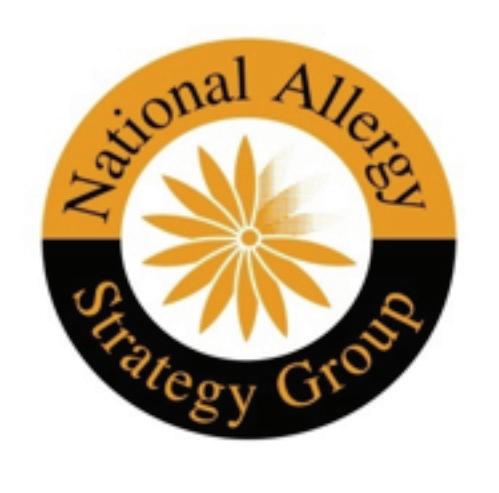
4 minute read
Service spotlight: Edinburgh
from Issue 38
Development and implementation of a pilot nurse led allergy clinic in Edinburgh
Margaret Kelman
Advertisement
Specialist Allergy Nurse
In a mixed methods feasibility pilot study, a Nurse-led allergy clinic ran for 3 years between 2017 and 2021, hosted by the University of Edinburgh and NHS Lothian and funded by Allergy UK. This novel clinic was initiated within the South East and South West area of Edinburgh, Scotland, to assess the feasibility of setting up an intermediary service in primary care, look at filling gaps in allergy service provision within Scotland and to measure the acceptability of the service to the patients, their families and health care professionals who used it.
We explored a variety of clinic models and chose the hub and spoke model as the best fit for delivery of the clinical service within primary care. In this model the Specialist Nurse is based within one primary care practice (hub) and all practices (spokes) within the cluster locality refer into the hub.
The two specialist nurses, supported by local hospital specialists, were required to diagnose, carrying out investigations where necessary, and manage allergic conditions, prescribe and provide follow-up for patients/parents. Referrals into the clinic were accepted, provided they fulfilled the inclusion criteria (see Box 1), by secure NHS email via an electronic proforma from all primary care practitioners within the cluster locality. The patient or parent was offered an initial consultation and
followed up with a review appointment 6–12 weeks later. Participants were asked to complete a consent form and quality of life questionnaire at each consultation and a satisfaction survey at the review, as well as being offered the opportunity
to be interviewed. The clinic started out offering face to face consultations with a phone review, but this was adapted to remote consultation as a result of the COVID-19 pandemic during 2020.
A total of 506 patients were referred, of these, 426 patients were considered to fit the criteria to be seen in the clinic, with 332 patients reviewed and discharged with complete paperwork. 35 out of 37 practices within the cluster locality were regularly referring patients into the nurse-led allergy clinic, with a waiting time of4-6 weeks on average. Of the health care professional referrals received into the clinic, the majority (52%) were over 16 years old. This was the largest patient group seen in the clinic and is probably due to the fact there is no comparable adult allergy or transition allergy service available within NHS Lothian or within the SE of Scotland. Of the 52% of patients over 16 years referred for anaphylaxis or suspected anaphylaxis only 47% had a clinical diagnosis of anaphylaxis after being seen in the clinic. Infants under 36 months with suspected food allergy were the second largest patient group (34%) referred. Referring health care professionals stated that 90% of patients would have been referred to secondary care had the nurse led clinic not been available. However a large percentage stated they had no service to refer to, indicating these patients would potentially have remained within primary care. It is Important to note, of those seen in the clinic, the allergy nurse only referred 5% onwards to secondary care specialities. The most commonly used method for follow up was via phone call (57%), with face to face appointments offered for 33% with a DNA rate of 10%.
To conclude, this novel nurse-led feasibility study has demonstrated that within the pilot area (NHS Lothian) the clinic was well received by the patients, families and health care professionals who engaged with the clinic. The high number of referrals (n=506) patients seen (n=426) and number of spoke practices (35/37) engaging with the clinic within the 30 month period reflects this. Patient and health care professional feedback from satisfaction surveys and interviews were also very positive
Box 1: Eligibility criteria
Inclusion criteria:
• Children aged <36 months with suspected food allergy. • Children aged <36 months with moderate-to-severe atopic eczema not responding to standard treatment. • Children and young people up to 16 years of age with suspected allergic rhinitis symptoms not responsive to a combination of oral antihistamines and nasal steroids. • Young people and adults (from 16 years of age) with a history of anaphylaxis or suspected anaphylaxis. • Able to give informed consent/assent for children under 16 years.
Exclusion criteria:
• Children aged <36 months with suspected or confirmed non-IgEmediated food allergy presenting primarily with gastrointestinal symptoms. • Single urticarial reactions without obvious triggers. • Non-allergic chronic urticaria. • Drug allergy. • Well-controlled allergic rhinitis, asthma or atopic eczema. • Mild-to-moderate atopic eczema without any obvious allergic trigger. • Localised insect sting reactions. • Unable to give informed consent/ assent.
about the service provided.
The full protocol article is available Development and implementation of a nurse-led allergy clinic model in primary care: feasibility trial protocol - PubMed (nih.gov) , and the full results of the study have been submitted for publication
Online training and events for members
Over the last two years we have been hosting regular online webinars for all our members. Covering a host of topics including Urticaria and the Registry for Immunotherapy (BRIT), the webinars have been organised by BSACI Council offering high quality, conveniently accessible education on key allergy topics. The speakers are all experts in their field and the webinars have been a huge success. throughout the UK and Ireland. Each session begins with an interactive journal club followed by case presentations including Q&A session.
As part of your membership you can attend the live webinars and Grand Rounds or access them afterwards at www.bsaci.org/account/
The BSACI Paediatric Allergy Committee (PAC) runs monthly educational opportunity for allergists
Thank you to ALK Abello and Thermo Fisher for supporting BSACI webinars and grand rounds.







